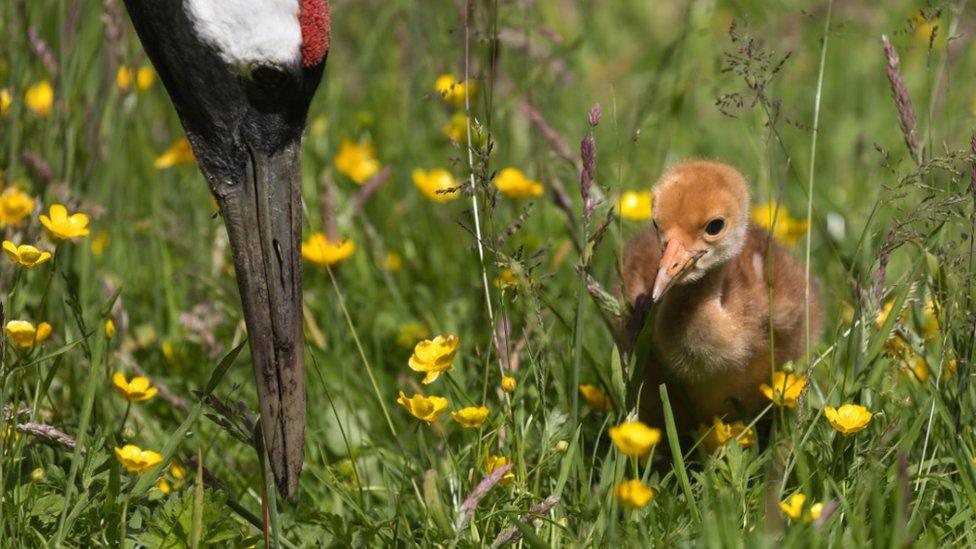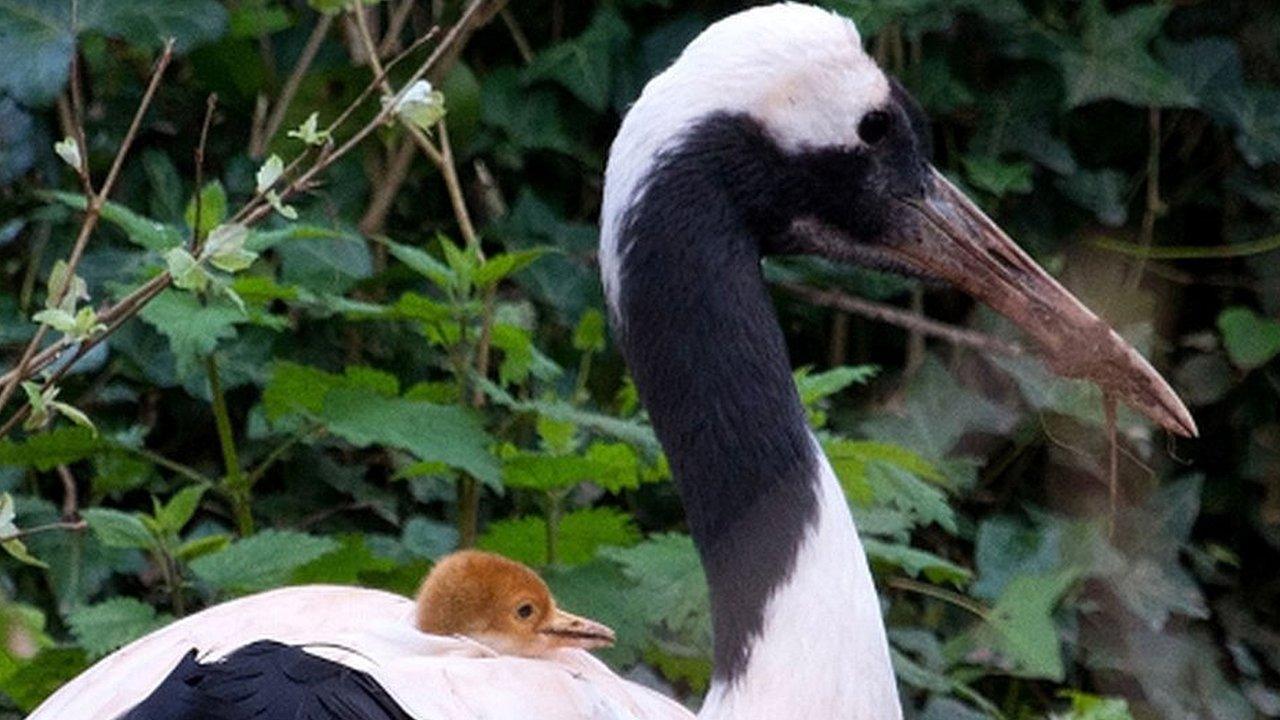Red-crowned crane: Rare species hatches at Martin Mere
- Published

The red-crowned crane chick is currently on the endangered list
One of the rarest species of crane has hatched for the first time at a conservation site in Lancashire.
The endangered red-crowned crane chick was born at WWT Martin Mere Wetlands Centre in Burscough.
Nick Brooks, centre manager, said the successful hatching was a "great achievement" as previously-laid eggs had been infertile.
He added: "The parents are doing a great job feeding and protecting it, so there isn't much intervention needed."
The red-crowned crane, also known as the Japanese crane, or Grus japonensis, is currently on the International Union for the Conservation of Nature (IUCN), external red list of threatened species.
The breeding pair, which are both captive, were introduced to the site in 2017 and the chick is their first successful offspring.
Mr Brooks said: "We will be keeping an eye on the chick as it grows.
"We are currently giving it preventative treatment once a week, measuring, weighing and worming it."

The red-crowned crane
The crane is monogamous and will usually find one partner which they will mate with for life
They mate by synchronised dancing, which they will perform together over the years to strengthen their bond
Usually, they will produce two eggs which will hatch in about 29 to 34 days
Due to a loss in wetland habitat, there has been a decline in population over the years
Source: WWT Martin Mere Wetlands Centre

Why not follow BBC North West on Facebook, external, Twitter, external and Instagram, external? You can also send story ideas to northwest.newsonline@bbc.co.uk
Related topics
- Published2 June 2012
